You have accumulated 7+ counters on Sorin and you intend to activate his ultimate ability (it’s a colloquial name for a planeswalker’s last ability). You need to imagine very well what you will be doing and what you may not do.
You will obey me!
Master, “Doctor Who” serials
720.1. Some cards allow a player to control another player during that player’s next turn. This effect applies to the next turn that the affected player actually takes. The affected player is controlled during the entire turn; the effect doesn’s end until the beginning of the next turn.
Sorin Markov, Mindslaver, Emrakul, the Promised End, Worst Fears, Opposition Agent
720.1a. Multiple player-controlling effects that affect the same player overwrite each other. The last one to be created is the one that works.
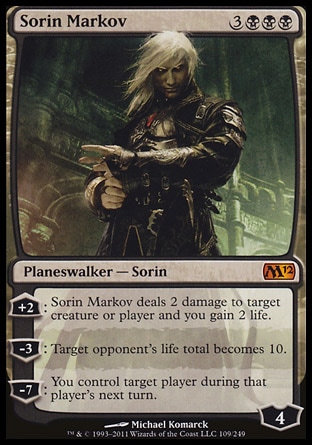
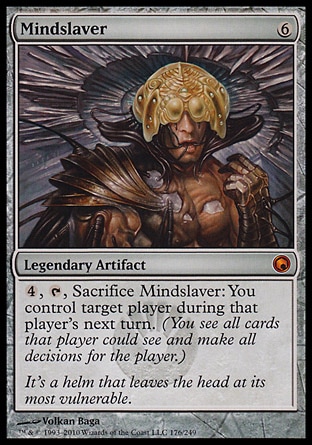
720.1b. If a turn is skipped, any pending player-controlling effects wait until the player who would be affected actually takes a turn.
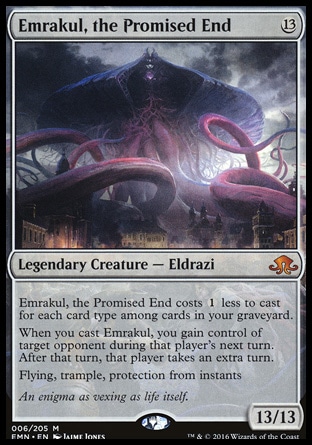
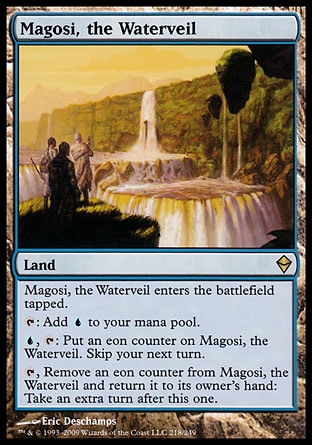
During your turn you cast Emrakul, the Promised End. Cunning opponent respoded by activation of the third ability of Magosi, the Watervei. The next opponent’s turn is skipped, but the effect of the Emrakul trigger will wait for the nex opponent’s turn. As result the opponent will have only one turn and it will be controled by you.
In general, using Magosi, the Watervei in this case is bad idea.
720.2. One card ( Word of Command) allows a player to control another player for a limited duration.
This control effect is limited to a maximum of two spells resolution: the Command’s itself and a spell, casted as Word of Command resolves.
720.3. Only control of the player changes. All objects are controlled by their normal controllers. A player who’s being controlled during his or her turn is still the active player.
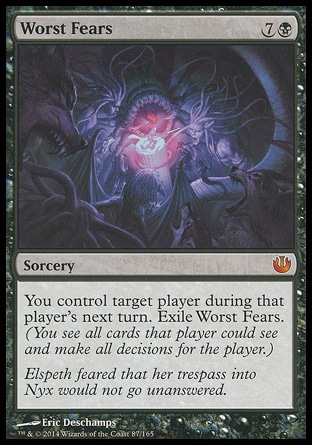
You control True-Name Nemesis with your opponent choose. In his turn, the opponent casts Worst Fears that successfully resolves. During your next turn, cunning opponent will control you. He may not block your True-Name Nemesis, since he doesn’t control it. But he may target True-Name Nemesis by your removal.
720.4. If information about an object would be visible to the player being controlled, it’s visible to both that player and the controller of the player.
Example: The controller of a player can see that player’s hand and the face of any face-down creatures he or she controls.
Both players may look the face of the manifested card of the player who is controlled by another player.
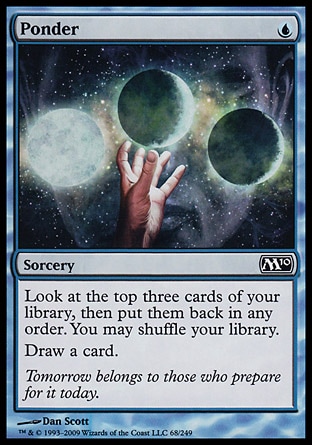
As Ponder resolves both players see three top cards, the order they will be put on top of the library and the drawn cad.
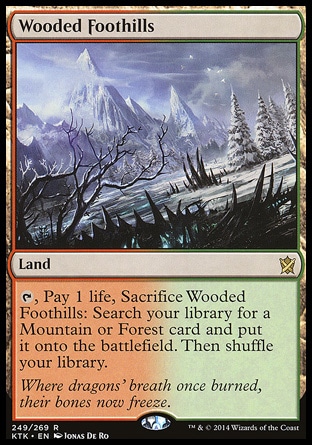
Any fetch land is a bomb! Activating of its ability allow to see all library of the player who is controlled.
720.5. While controlling another player, a player makes all choices and decisions the controlled player is allowed to make or is told to make by the rules or by any objects. This includes choices and decisions about what to play, and choices and decisions called for by spells and abilities.
Example: The controller of another player decides which spells that player casts and what those spells target, and makes any required decisions when those spells resolve.
Example: The controller of another player during his or her turn decides which of that player’s creatures attack, which player or planeswalker each one attacks, what the damage assignment order of the creatures that block them is (if any of the attacking creatures are blocked by multiple creatures), and how those attacking creatures assign their combat damage.
Controlling another player, you will choose
The modes and targets of his Cryptic Command;
Which cards he will reveal as Gifts Ungiven resolves;
Whether he spends life or mana to cast Spellskite.
720.5a. The controller of another player can use only that player’s resources (cards, mana, and so on) to pay costs for that player.
Example: If the controller of a player decides that the controlled player will cast a spell with an additional cost of discarding cards, the cards are discarded from the controlled player’s hand.
If you make that player cast a spell, and as an additional cost to cast that spell a creature must be sacrificed, you must choose the creature under that player’s control.
And, obviously, you may only use the resources of only that player to pay the costs, not your own. For your Convoke you may tap only creatures under your control.
720.5b. The controller of another player can’s make choices or decisions for that player that aren’s called for by the rules or by any objects. The controller also can’s make any choices or decisions for the player that would be called for by the tournament rules.
Example: The player who’s being controlled still chooses whether he or she leaves to visit the restroom, trades a card to someone else, agrees to an intentional draw, or calls a judge about an error or infraction.
“Elementary, My Dear Watson!”
720.6. The controller of another player can’s make that player concede. A player may concede the game at any time, even if he or she is controlled by another player. See rule 104.3a.
As you see the control of another player provides a lot of information. If this information is critical, for the affected player to concede better than to allow the opponent know all secrets.
720.7. The effect that gives control of a player to another player may restrict the actions the controlled player is allowed to take or specify actions that the controlled player must take.
Thia rule conserns the one old card with rather complicated text: Word of Command.
720.8. A player who controls another player also continues to make his or her own choices and decisions.
Another “Ovbiously” from professor Snape.
720.9. A player may gain control of himself or herself. That player will make his or her own decisions and choices as normal.
That may happen then you may not target the opponent, so you have to target yourself. Or your cunning opponent casts some spell changing target of your spell or ability, which may allow you control him.
As per Tournament rules, a small detail is of great importance to us here:
3.15 Sideboard
During a game, players may look at their own sideboard, keeping it clearly distinguishable from other cards at all times. If a player gains control of another player, he or she may not look at that player’s sideboard, nor may he or she have that player access his or her sideboard.


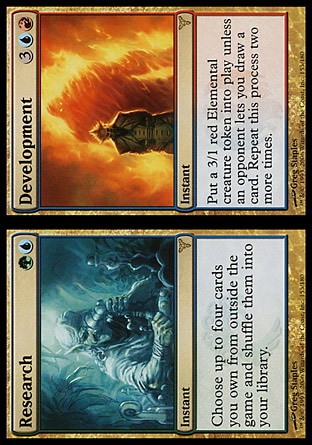
Therefore, while controlling another player’s turn, you may not look into his or her Sideboard. The Wishes card cycle and other effects may not bring a card that’s outside the game into the game.
And one very important rule from Infraction Procedure Guide:
A player controlling another player is responsible for that player’s triggers in addition to his or her own.
That means that you will reseave penalty for missed triggers: yours and the player’s who you control. Be careful at tournaments with competitive REL!
Control of Another Player in Two-Headed Giant
In formats where more than 2 players participate in a game with a shared turn for a team of several players, a player controlling another player controls the entire team of that player.
For instance, in Two-Headed Giant:
805.8. (…) If an effect causes a player to control another player, the controller of that effect controls the affected player’s team.
Homework
Thanks to Worst Fears you control your opponent. During his turn you cast Collected Company from his hand. Will he see top six cards of your library?
No doubt. By the rule 720.4 this information is available to both players.
You choose an opponent as target of your Emrakul, the Promised End’s trigger. During the opponent’s upkeep step your activate the ability of his Ring of Ma’rûf. Which card may you put in the opponent’s hand instead of drawing?
Oracle text of Ring of Ma’rûf:
5, Tap, Exile Ring of Ma’rûf: The next time you would draw a card this turn, instead choose a card you own from outside the game and put it into your hand.
Unfortunately, no. The effect of the ability of Ring of Ma’rûf tells about cards outside of the game. At the tournament outside of the game is the sideboard. Since you can’t see the your opponent’’s sideboard, instead of drawing a card, nothing happens.
During your turn, an opponent has played a Summoner’s Pact which resolved successfully. Later during that turn you have activated Sorin Markov’s third ability which also resolved successfully. The opponent’s turn begins, in which you control him. What happens?
At the beginning of your opponent’s upkeep, the delayed trigger of the Pact goes off. Your opponent controls it, but since you control him in that turn, you decide whether to pay or not. If you decide not to pay, your opponent loses the game.
You are playing in a tournament at Competitive Rules Enforcement Level. You are at 15 life. During your turn, you activate Mindslaver’s ability targeting your opponent. The ability resolves. At the beginning of the next turn you forget about the enemy Vampire Lacerator’s trigger and do not reduce life. A judge passing by is eager to punish someone for this. Who will be punished and how?
Since you are controlling your opponent, you are responsible for his triggers. Since Vampire Lacerator’s trigger is considered detrimental, you get a Warning. Read more about missed triggers.
Translated by Witas Spasovski

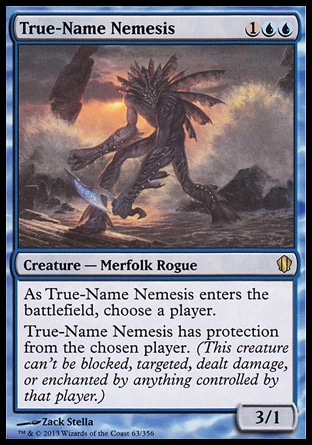
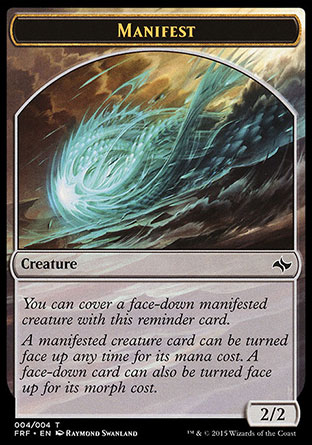
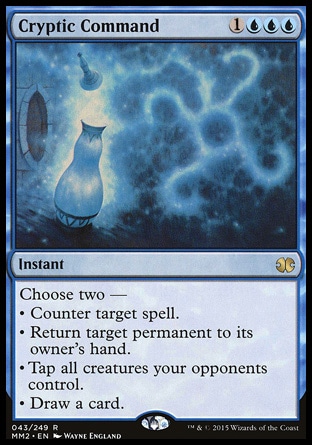
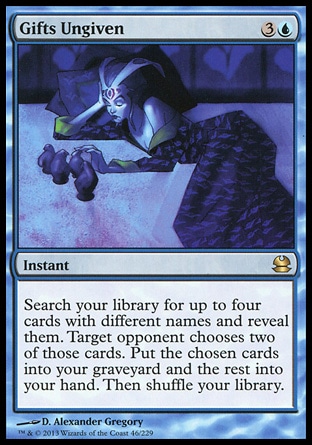

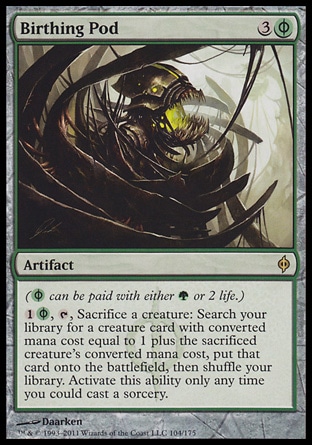
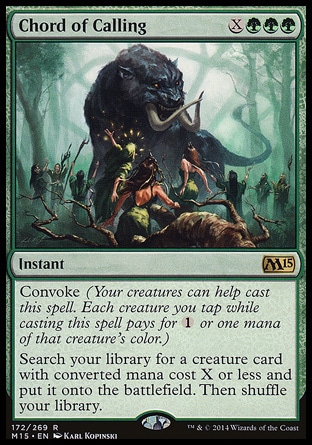
In Commander game few players can “fight” for control over one of the players. One whose control effect was created the last will “win”.
You play with two cunning opponents. The first of them during his turn activated the ultimate ability of Sorin Markov, targeting you. If later, before the start of your turn, the second opponent activates the ability of his Mindslaver, targeting you, then he will control your next turn.